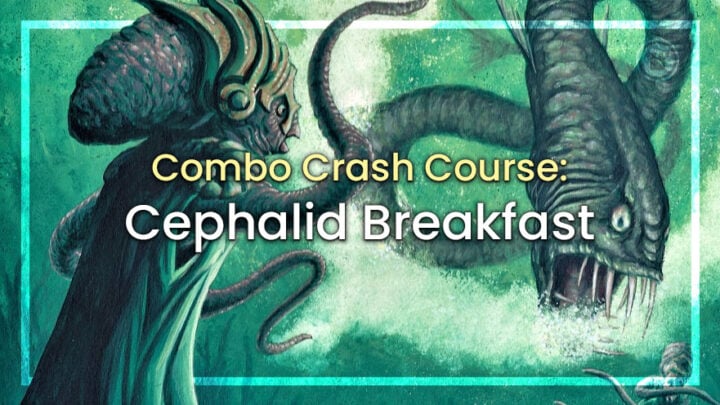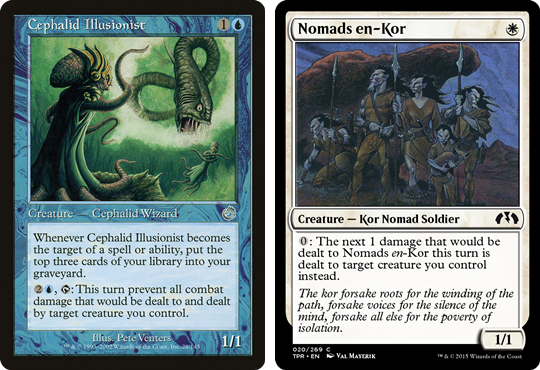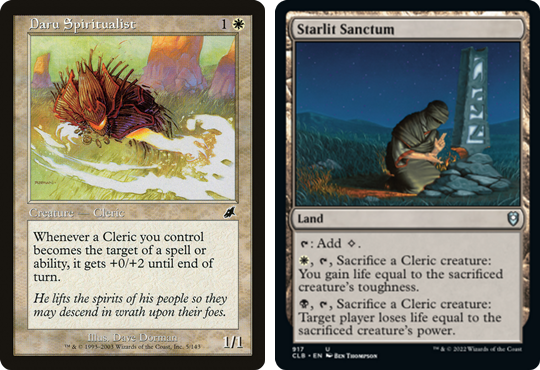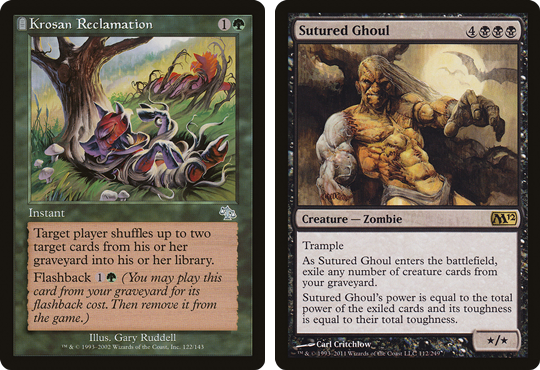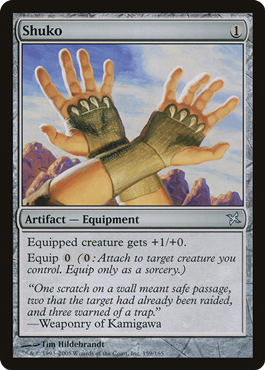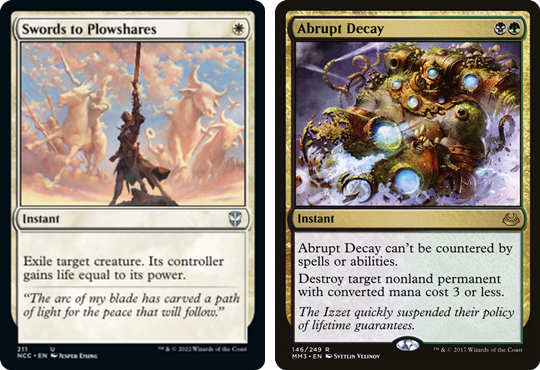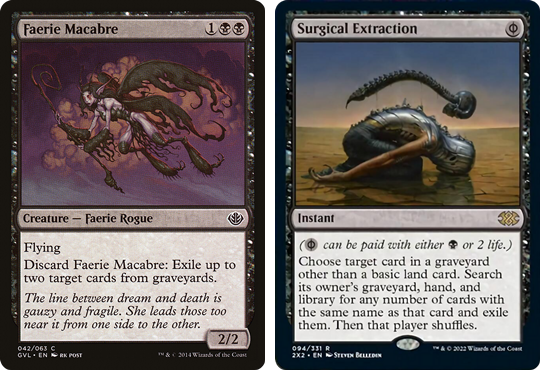This week’s combo breakdown tackles one of the longest-lived archetypes in Magic history — and one of its weirdest names (and there’s some stiff competition for that crown). It’s almost always combo decks that garner the most esoteric monikers among the community.
I blame the need to find distinct shorthand references for tons of specific strategies combined with their creators’ desire for subterfuge or mischief. Still, most combos end up being named for either the cards they use to win (Cat Oven, Splinter Twin, Living End) or what they try to do with them (Reanimator, Storm).
But not this one. This story needs more of a… deep dive.
What is Cephalid Breakfast?
Ever since the early 2000’s, “Cephalid Breakfast” has referred to a combo deck relying on creatures whose effects trigger when targeted by a friendly spell or ability, plus cards with activated abilities which can target the first creature over and over again at no cost.
It turns out the most useful such trigger is one that lets you mill your own library, found on both Cephalid Illusionist and the more expensive Cephalid Aristocrat. The “Breakfast” part comes from “Full English Breakfast,” an even older combo deck that also made heavy use of the graveyard and somehow inspired a whole etymology of breakfast-centric deck names.
Send for the Cephalids
When Nomads en-Kor and similar free-to-target creatures were printed, the first combo decks built around them actually focused on Daru Spiritualist — granting the Cleric infinite toughness would lead to infinite life from Starlit Sanctum, with Test of Endurance or Unspeakable Symbol to actually close games.
But a few players (including future world champion Javier Dominguez) were dissatisfied with that clunky, overwrought win condition. Despite being propped up by the strongest tutoring engine ever printed, there were just too many places it could break down. This group were convinced that Cephalid Illusionist would offer the fastest, most consistent path to convert the Nomads en-Kor combo into wins.
The theory was that so long as you play some set of cards which can reliably win the game from your graveyard, milling your entire library to set them up is even faster and more consistent than Survival. For Javier back in ‘04, “winning from your graveyard” meant flashing back Krosan Reclamation on your next upkeep to put Reanimate back on top of your library. That could then bring back Sutured Ghoul to eat every creature in your library (including the one-of Krosan Cloudscraper), pick up a free Dragon Breath and swing for lethal.
Over the last twenty years, the preferred graveyard combo payoff has constantly evolved. And in 2022, you’re more likely to cast a Dread Return for Thassa’s Oracle off some Narcomoebas. But no matter what’s on the breakfast menu for a given format, it’s always been the same Cephalid serving it up — and that’s still true in the Eternal formats of today.
Building a Better Breakfast
The archetype is never among the frontrunners of the format, but the fact that Cephalid Breakfast is still able to take out Legacy Leagues every month is pretty incredible given that even the more “updated” combo pieces are all ancient technology today.
People experimented with Lightning Greaves or Shuko in these lists basically as soon as Equipment debuted in Mirrodin, unlocking an additional source of unlimited Illusionist triggers. While unable to go off at instant speed the way Nomads en-Kor can, Shuko forces opponents to diversify their removal — and crucially can, nowadays, be tutored up with the help of Stoneforge Mystic.
Fans of other Equipment-based combos like Thopter-Sword or Hammer Time will already appreciate the luxury of running a Stoneforge package inside your combo deck. In addition to acting as four extra copies of Shuko, Stoneforge unlocks a credible backup plan with just a few extra inclusions, like Batterskull, Umezawa’s Jitte or Kaldra Compleat.
Ultimately, I suspect this is the main advantage still keeping Cephalid Breakfast in business. The combo cards only take up a handful of slots and play well with tools and tutors grindy creature decks already want to run, like Stoneforge, Aether Vial, Living Wish and Recruiter of the Guard.
None of the combo-specific creatures are impactful alone. But they are cheap, and they’ll carry a sword or Jitte as well as anything else.
As always, the more credible your ability to play “normal Magic,” the easier it is to eventually land a comfortable combo kill. And backed up by countermagic and Cabal Therapy, Cephalid Breakfast can really make itself comfortable.
How to Stop It?
By the standards of some decks featured in this series, Cephalid Breakfast is pretty straightforward to interact with. This tends to be what leads a deck to pursue the combo-control path in the first place — because just going all in on your win condition without establishing a resource lead usually won’t pay off.
Only Nomads en-Kor (and similar creature options) will let you mill yourself with Cephalid Illusionist at instant speed, and opponents with removal can still aim to stop you getting them in play together. Equipment, on the other hand, are almost always activated at sorcery speed, giving your opponent every opportunity to cut you off — even mid-combo.
Of course, milling yourself is only half the battle. Casting Dread Return for Thassa’s Oracle means there’s a third spell your opponent could potentially counter, and it’s by far the most brutal. Since your entire library is now in the graveyard, targeted graveyard hate like Surgical Extraction finally comes online as another way to disrupt the final steps of the combo.
Pre-emptive graveyard hate like Rest in Peace or even Tormod’s Crypt can slow the deck down, too. But that really only means the Breakfast player needs to play Thoracle from hand instead of milling it over. So long as their library is empty, they care little about where the remaining cards end up.
Cards which silence the relevant abilities of combo pieces are a much tougher obstacle. Linvala, Keeper of Silence stops Nomads en-Kor, Stony Silence stops Shuko and Torpor Orb stops both by stopping Thoracle.
It can be very tricky to defend this whole apparatus long enough in 1v1 Constructed, but armed with free counterspells and the trusty Cabal Therapy (plus the extra pressure placed on opponents by the midrange/taxes plan), dedicated players have made the deck look solid.
It’s hard to say whether the tense, target-rich multiplayer environment of cEDH makes combos like this easier or harder to pull off, but the strengths of Cephalid Breakfast — lightweight, tutorable card package, low mana costs, and reliable “0 to 100” combo kill of the table in a single turn — have delivered some significant tournament results.
The Most Important Meal of the Day
Cephalid Breakfast is a mighty significant landmark in the long, ever-unfolding story of competitive Magic. The idea of using a self-mill combo to shortcut into a second, graveyard-based combo has inspired a long lineage of success. Its legacy is carried on by Dredge, Oops All Spells, Four Horsemen, Kethis Combo, Lotus Storm, Altar Hogaak and even more, besides.
And yet, somehow, even with all these later combo options available, the original one-two combo can still hold its own. It is very rare these days for cards to survive so long without being superseded, either by strictly better versions of the same effect, or the metagame simply leaving them behind.
Thanks to this longevity (and a memorable name), Cephalid Breakfast has become a classic bit of Magic apocrypha, vaguely familiar even to those who have never seen it in action. Luckily for them, this is one breakfast menu which seems to always be available.

Tom’s fate was sealed in 7th grade when his friend lent him a pile of commons to play Magic. He quickly picked up Boros and Orzhov decks in Ravnica block and has remained a staunch white magician ever since. A fan of all Constructed formats, he enjoys studying the history of the tournament meta. He specializes in midrange decks, especially Death & Taxes and Martyr Proc. One day, he swears he will win an MCQ with Evershrike. Ask him how at @AWanderingBard, or watch him stream Magic at twitch.tv/TheWanderingBard.

